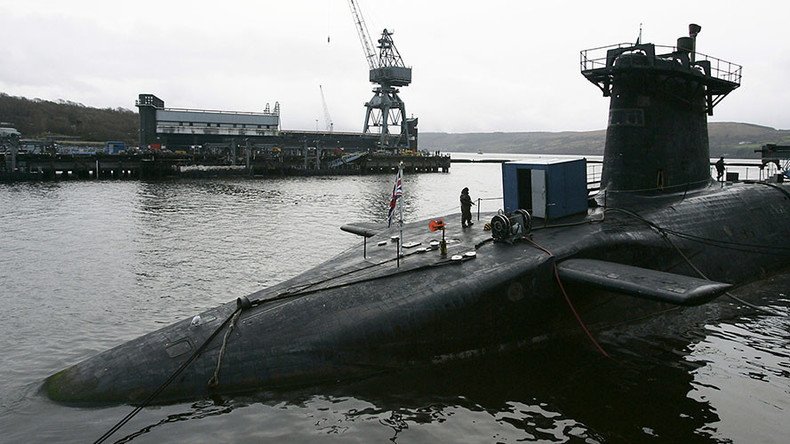Labour divided as pro-nuke MPs demand Trident renewal

Blairite Labour MPs who are in favor of Britain renewing its Trident nuclear weapons have launched a counter-report to oppose the review tabled by pro-disarmament party leader Jeremy Corbyn. They are calling it a ‘myth-busting’ exercise.
The move comes as Tory Prime Minister David Cameron prepares for a Parliamentary vote on renewal. The pro-nukes Labour MPs hope to convince their fellow parliamentarians to back the multibillion pound project.
The leading figure in the move is right-wing MP John Woodcock, a vocal opponent of the Labour leader.
His Barrow-in-Furness constituency is the home of British arms giant BAE Systems’ nuclear submarine facility. In 2015, the 37-year-old served as chairman of the Blairite Progress think tank – which Shadow Chancellor John McDonnell recently characterized as a “hard right” sect.
Woodcock wants Labour disciplined into voting for renewal, a policy he argues was agreed at the 2015 Labour Party conference.
The Guardian reports him as saying his report “shows why there must be a three line whip in favour of the renewal program we started in government.”
The internal Labour row has come to the fore as a leading disaster expert warned Western societies would respond poorly to nuclear incidents due to a lack of public information.
Christopher Abbot, a former RAF commander and chair of the Emergency Planning Society for Chemical, Biological, Radiological and Nuclear (CBRN) incidents, said a lack of knowledge on the issue is dangerous.
Abbot used the example of Japan and the Fukushima nuclear plant disaster to highlight the difference in levels of information while giving evidence at a science and technology select committee hearing in the House of Commons.
“The Japanese educate the public. I just don’t see that it would have worked as successfully in western society,” he argued.
He said the UK is “quite a way behind other countries in the world” and that the “level of advice is very inconsistent across the country.”












